 By Christine Darg
By Christine Darg
Jerusalem Channel
The biblical holidays of the Jewish people have great spiritual significance, and today I want to examine the Feast of Tabernacles happening this week and its great fulfillments in the future.
The church has only really begun to discover the depths of this Jewish holiday called Sukkot (Booths) in Hebrew. And while many fall harvest festivals in the UK and even the American holiday of Thanksgiving are partially inspired by it, the full meaning of the fall Festival of Booths, or the Feast of the Ingathering, is only now being prophetically appreciated by many believers.
We’re amazed by the number of Christians who have started to celebrate this last of God’s Levitical appointed times. So… if living in booths for one week as a reminder of Israel’s desert sojourn is a perpetual command for the Jewish people…. why are so many Christians in our lifetime keeping this festival?
We Christians are celebrating Sukkot because it is a dress rehearsal for the Millenniual rule of King Messiah. Zechariah 14 prophesies all the nations will come up to Jerusalem to worship the King!
We must get on God’s calendar. From the very beginning, God has had His own calendar, and it’s very different from our calendar.
For instance, God’s days don’t start at midnight. In the Bible God’s days begin at sunset. At sunrise we may wake up and say, “A new day has begun!” but God is always way ahead of us. The day began hours ago at midnight actually!
And there are certain days throughout the year that God has set aside as particularly special. They are His moedim, “appointed times.”
We have seen God do big things during His appointed times, but even most Christians don’t yet understand God’s biblical timeline that is being played out in history.
Just look at the history and ministry of Jesus. God’s appointed times in the spring foreshadowed His ministry.
Jesus died at Passover as the Lamb of God,
He was entombed just in time for the first day of Unleavened Bread.
He rose from the dead on the festival of Bikkurim, Firstfruits.
The Holy Spirit was poured out on Shavuot-Pentecost.
The appointed times in the spring are prophetic shadow pictures fulfilled down to the smallest detail by the first coming of Jesus. No other religion on the earth has anything like this in fulfilling specific Hebrew Bible prophecies on holidays.
And just as the appointed times in the spring were fulfilled by the first coming of Jesus, so will God’s appointed festivals in the fall be fulfilled with his second coming. The three fall festivals are all pictures of the various stages in the Lord’s return: The Feast of Trumpets, or Yom Teruah in Hebrew, the Day of the Shout!, speaks of the Lord’s return in the atmosphere for the completed church, the Bride of Messiah. Yom Kippur, the Day of Atonement, speaks of the national redemption of Israel. The last and great Feast of Tabernacles speaks of the thousand-year rule of Messiah and the ingathering of the nations in the sukka of God.
We have to keep our eyes on Israel and Jerusalem. Israel is the center of the last days.
Israel and Iran are so close to military conflict, which could suddenly erupt. We’re moving into very chaotic times, and most people will be absolutely blindsided by the events that are coming as described in the Book of Revelation. Global events are moving at a pace that is absolutely breathtaking. Emergency food companies have intensified.
But the Bible foretold all of these things in advance so that we should be watchmen. Since the days of World War II and the defeat of Nazism, Israel and the world once again are threatened with perilous times.
Rav Moshe Wolfson, a big influencial rabbi in New York, held an emergency gathering in his community for prayer about tension with Iran. Rav Wolfson told his followers, “Our Sages of Blessed Memory say that Persia will destroy the entire world and the Jews will be in a difficult situation,” He asked, ”Why are we quiet? Where is the awakening? Why is everyone apathetic? Why is everyone busy with silly and unimportant things? Do we not hear the alarm? Do we not know that we must break open the gates of Heaven and ask for mercy from G-d?”
“In the coming weeks,” he said, “we face a total war in Iran, Israel, Europe and the U.S. And the nation of Israel in its entirety must prepare spiritually. If we fail to pray, it causes the situation to get worse.” The rabbi compared Iran’s President to the villain Haman in the Scroll of Esther, who wanted to kill all the Jews. The rabbi said, “G-d will perform miracles in the days and weeks ahead. Since the Holocaust, G-d has already done great miracles for the Jews, especially in the Land of Israel, which now hosts most of the world’s Jews.”
I say Iran has blasphemed the God of Israel. I was reading this week in Isaiah 37 how in King Hezekiah’s day “the Assyrian king had mocked Israel and their God, and the prophet Isaiah said, ‘Thus says the Lord, do not be afraid, the king of Assyria has blasphemed me.’”
I wonder if you’ve seen the series about Jesus and his disciples called “The Chosen”? While it’s not always theologically correct, I was delighted that there was an episode in which Jesus and disciples along with his mother Mary and some of the female followers decorated a sukka, and there was a scene of all of them dining in the succa just as the Bible commands. I think I’ve seen most movies about the life of Jesus, but The Chosen is the first that has included scenes of Jesus in a sukka, and yet of course Jesus would have celebrated this great festival every year. In fact, the Gospel of John teaches us that Yeshua celebrated the Feast of Tabernacles.
In John 7: 14 Jesus went to the Temple and began teaching, and on the last great day of the feast which is, called Hoshana Rabba (הוֹשַׁעְנָא רַבָּא), the High Priest led a parade to the pool of Siloam to perform a water libation ritual, and at that very moment Jesus stood up and cried out, “If anyone thirsts, let him come to me and drink.” Yes, that happened during Sukkot and it is indeed the feast of the future, the feast of the Millennium!
Now I love this: The Aramaic word “ushpizin” (אוּשְׁפִּיזִין) refers to seven exalted biblical “guests” whom the Jews honor during the week-long festival of Sukkot, namely: these are the patriarchs Abraham, Isaac, Jacob, Joseph, Moses, Aaron, and King David. According to Jewish tradition, on each night a different biblical guest enters the sukkah, and they are symbolically welcomed in a similar fashion to when families put an Elijah’s Cup on the table during the Passover meal, and they set an empty chair at the table for Elijah and open the door—and the prophet Elijah really is prophetically expected to show up again in the Last Days! So says Malachi 4: 5, “Behold, I will send the prophet Elijah to you before that great and dreadful day of the LORD.”
But during Sukkot, on the first night Abraham is honored; on the second night, Isaac, and so on. It might be a good idea to honour Elijah again in the fall festival in the sukkas and also to invite Jesus/Yeshua, Israel’s greatest native Son, because after all both Elijah and Jesus are predicted to return to Israel!
John 7: 10 tells us that Jesus went up to Jerualem during the festival of Sukkot and he went “in secret” during the “middle of the festival,” perhaps on the fourth day (the “Day of Joseph”)– that’s an intriguing speculation at the “Hebrew for Christians” website since the biblical patriarch Joseph in the Book of Genesis is a type in the Hebrew Bible of Messiah.
Bless the Lord, O my soul, and all that is within me, bless his holy name. We are living in unprecedented times when the shadow of the future is encompassing us like the Divine Presence!

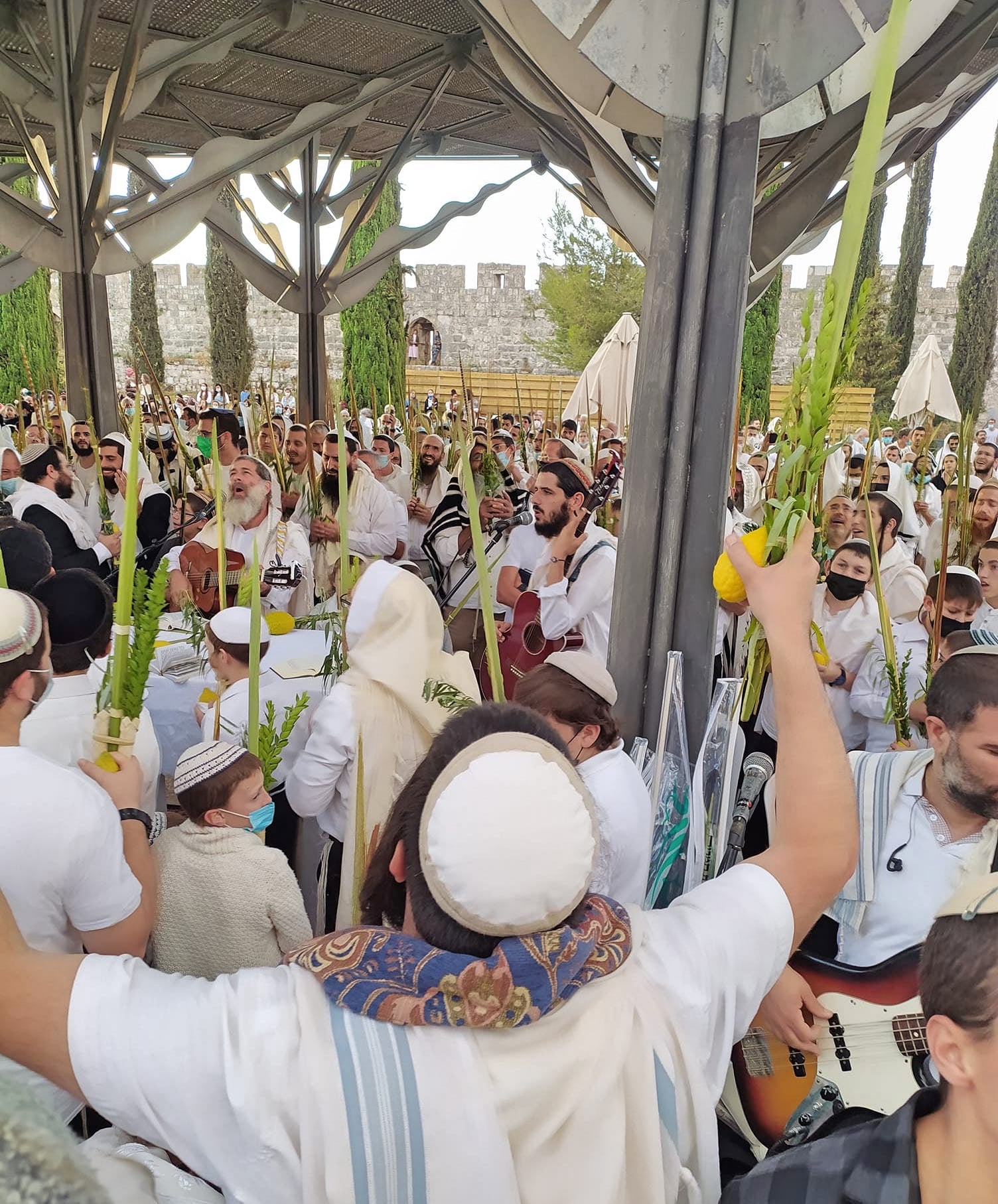
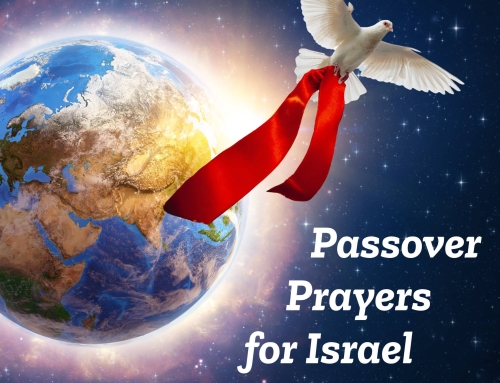
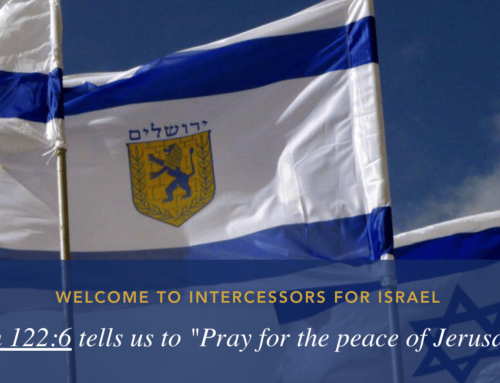
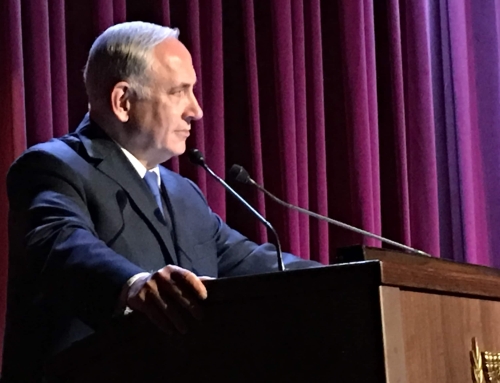
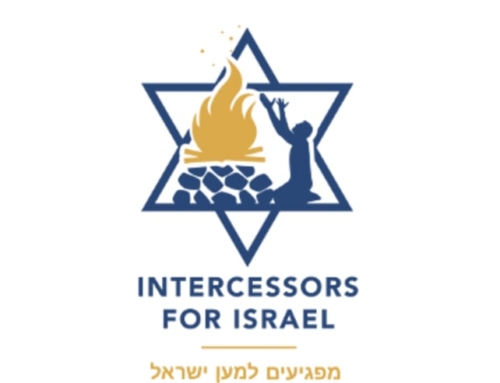
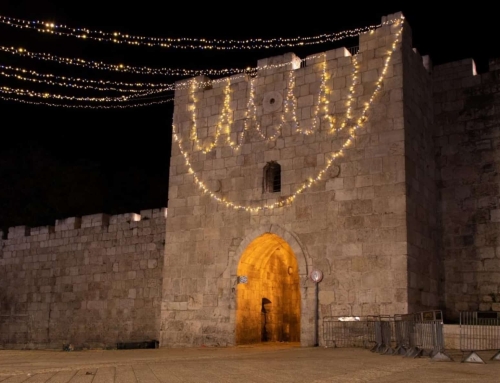
Leave A Comment